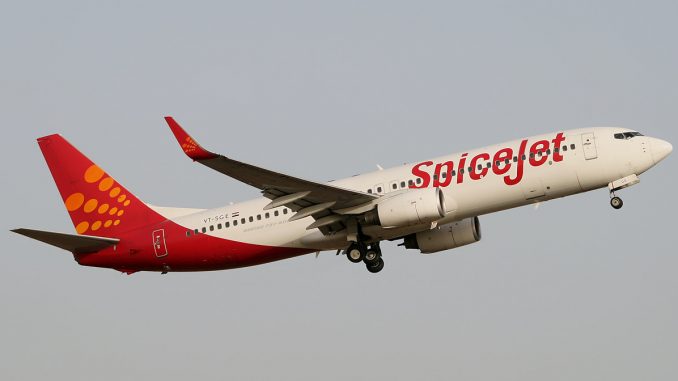
Indian low-cost carrier SpiceJet is set to take over aircraft, employees and other assets from former Jet Airways, which suspended operations last week.
Just a few days ago, SpiceJet applied to the Indian Directorate General of Civil Aviation for a licence to dry-lease six former Jet Airways Boeing 737 aircraft. Last week, the airline had already signed leasing agreements for 16 737. In total, the carrier now awaits the introduction of 22 Boeing 737 airplanes and five Bombardier Q400 turboprops in the immediate future.
According to a report by the Times of India, Spicejet may take up to 40 former Jet Airways Boeing 737 within the next ten days. The same report also says flag-carrier Air India will take over five Boeing 777-300ER jets from the now-gone airline.
Additionally, SpiceJet has already hired more than 500 former Jet Airways employees, including 100 pilots, and is looking to offer even more jobs.
In December last year, Jet Airways was operating a fleet of 124 aircraft, mostly consisting of Boeing 737, 777 and Airbus A330 and was employing more than 16,000 people. Before suspending operations on Wednesday last week, the airline had continuously downsized its operations, as it was forced to ground most of its fleet due to unpaid leasing fees and maintenance expenses.
The Indian Aviation Ministry has asked domestic airlines to quickly replace missing capacities left by the shutdown of Jet Airways.
Restarting former Jet Airways routes
SpiceJet, announced to start a total of 24 new domestic routes from Mumbai and Delhi, two former hubs of Jet Airways, between April 26th and May 2nd. In addition, India’s largest carrier IndiGo also presented new connections and capacity increases from the two cities.
The suspension of Jet Airways’ flights led to 280 and 160 open slots at Mumbai and Delhi Airport respectively. India’s government is now offering domestic carriers to temporarily take over the slots in order to restart missing connections ahead of the busy summer season.
Meanwhile, SpiceJet and Gulf airline Emirates have announced that both airlines will launch a codeshare partnership, the first of its kind for the Indian low-cost carrier.
Emirates currently flies to nine cities in India. The proposed codeshare agreement, subject to necessary government approvals, adds new destinations to the Gulf carrier’s network. Therefore, passengers travelling to India on Emirates will be able to choose between 51 destinations across SpiceJet’s domestic network, whereas passengers flying from India to the Middle East and beyond benefit from Emirates’ international flight network. The two airlines will also optimize flight scheduling for minimal transit times.
SpiceJet currently holds a share of almost 14 percent in the Indian domestic aviation market, making it the second largest airline on domestic flights. Competing low-cost carrier IndiGo sits in first place, with a market share of more than 45 percent.

Jakob Wert is an aviation journalist from Germany. He built up the website IFN.news and is the Editor-In-Chief of International Flight Network.



